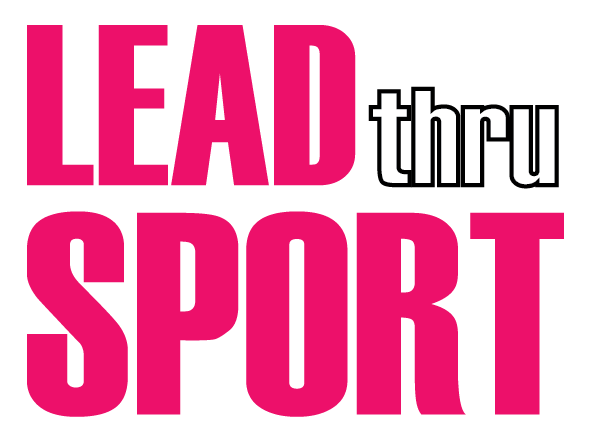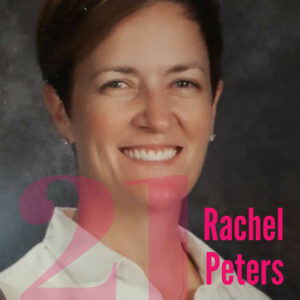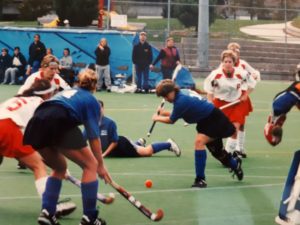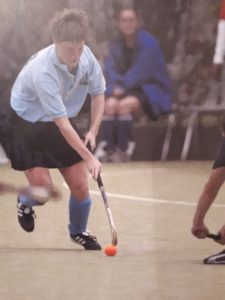Week 21: Rachel Peters
Teacher
Please tell us a little bit about yourself.
My name is Rachel Peters. I currently teach Grade 7 at Richmond Christian School and am working on my Masters in Educational Leadership and Management from Royal Roads University (Grad 2019).
I grew up in Penticton, BC, to a family that enjoyed active living throughout the year, from water skiing in the summer to snow skiing at Apex in the winter. I was involved in youth soccer in the community and, once I became school-aged, I tried to play on as many sports teams as possible. As I grew up, basketball and field hockey were my main sports until I decided to specialize in field hockey and was named to Provincial teams and the Varsity team at the University of Victoria. In 1997, I was named Canada West Rookie of the Year as well as the CIAU (now CIS) Rookie of the Year. In the five years that I played at the University of Victoria, we won two National Championships, two silvers, and one bronze. I was named team captain in my final year and earned a spot on the All-Canadian All Star team in 2001.
Being a high level athlete doesn’t come without injury. I suffered three ACL tears, with full reconstructive surgeries, within six years, at the prime of my development. Invaluable lessons were learned during each recovery but the most important being that my love for sport, teamwork, and camaraderie became deeply rooted within me. It was at this time that I turned my attention to coaching and coached High School and Regional High Performance teams on Vancouver Island, and BC Provincial teams ranging from U14 to U21. After attending the National Coaching Institute in Victoria in 2006-2007, I was asked to join the Women’s National Field Hockey team as their Team Manager for two tours: South Africa and an Olympic Qualifying Event in Victoria, BC.
What is something you learned by being on a team? How does that apply to your work?
I love being a part of team and working together to accomplish a common goal. Whether it is in an actual sport or in my place of work, I believe that each individual has a unique quality and character that adds to the whole group. I believe sport is so relational and learning to get along with a diverse group of people on a team can teach you valuable skills about life. Many times, through triumphs and defeats, a team provides a safe place for you to land and be vulnerable when going through intense, emotional moments. Being on a team also taught me the value of planning and preparation and the concept of “thinking backwards”. Certain games and championships were always circled on the calendar and the excitement and work ethic during the practices leading up to events were always highly focused and specific.



